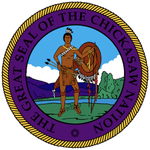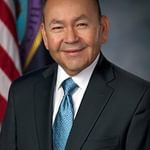
The Oklahoma Attorney General’s Office has asked the United States Supreme Court to stay an Oklahoma appeals court ruling that voided the conviction of an Oklahoma death-row prisoner for a triple murder committed on tribal lands against members of the Chickasaw Nation while state prosecutors seek review of that ruling by the U.S. high court.
The state prosecutors’ filing in Oklahoma v. Bosse, which the tribe opposes, comes in the midst of four decisions by the Oklahoma Court of Criminal Appeals applying the U.S. Supreme Court’s landmark July 2020 tribal sovereignty decision in McGirt v. Oklahoma to void state-court convictions for murders committed by or against Native Americans on tribal lands in Oklahoma. In a historic ruling, the court determined that Congress had never disestablished the Muscogee (Creek) Reservation and the lands within the historical boundaries of the reservation constituted “Indian Country” under federal law.
The same day McGirt was decided, the Court voided the conviction of death-row prisoner Patrick Murphy, a citizen of the Muscogee Nation, for the murders of two tribal members within the borders of the Creek Reservation. The Court ruled that the federal government, not Oklahoma, had exclusive jurisdiction over those crimes. On March 11, 2021, applying McGirt, the Oklahoma appeals court ruled that the murders committed by Shaun Bosse, who is White, were committed within the historical boundaries of the Chickasaw Nation Reservation and that the Oklahoma courts had no jurisdiction to adjudicate the crimes.
Since April 29, the Oklahoma Court of Criminal Appeals has voided the convictions of three more Oklahoma death-row prisoners for murders committed on tribal lands. Miles Bench, an enrolled member of the Choctaw Nation, had been sentenced to death for a murder committed within the boundaries of the Choctaw Reservation. Two other death-row prisoners, Benjamin Robert Cole Sr. and James Chandler Ryder, are non-Native Americans who were convicted of crimes against citizens of the Cherokee Nation within the historical boundaries of the Cherokee Reservation.
In April, the Oklahoma Attorney General’s Office asked the state court to reconsider its ruling in Bosse’s case, arguing that state prosecutors retained concurrent jurisdiction over murders of Indians by non-Indians on tribal lands. Bosse and the Chickasaw Nation opposed the motion. After the Oklahoma court ruled in Bosse’s favor, state prosecutors asked the U.S. Supreme Court to intervene.
On May 7, Bosse and the Chickasaw Nation filed separate briefs in the U.S. Supreme Court opposing the motion, saying that the state prosecutors’ arguments run counter to two centuries of Congressional statutes and U.S. Supreme Court rulings.
The Impact of McGirt v. Oklahoma
The U.S. Supreme Court’s decision in McGirt was groundbreaking with respect to determining whether lands were still “Indian Country” for purposes of federal law but did nothing to change what law applies once the status of the land has been established. Federal law has long declared that major crimes committed by or against Indians on tribal lands can be tried only in federal or tribal courts. McGirt held that large portions of 11 counties in eastern Oklahoma, including much of the city of Tulsa, were within the boundaries of the Creek Reservation established by a series of treaties between 1832 and 1866 in the aftermath of the federal government’s forcible relocation of five Native American tribes. The same arguments that led the Court to conclude that Congress had never disestablished the Creek reservation also apply to the treaties between the United States and the Cherokee, Chickasaw, Choctaw, and Seminole Nations.
The Oklahoma Court of Criminal Appeals has applied McGirt to recognize reservation boundaries and void capital convictions for offenses committed within the lands of four of the five tribes. The rulings do not free defendants of liability for criminal offenses, and federal prosecutors have undertaken steps to ensure they will face trial in federal court.
Oklahoma Attorney General Mike Hunter has petitioned the U.S. Supreme Court to stay the vacation of Bosse’s conviction to determine whether McGirt has been properly applied to crimes committed in “Indian Country” against Native American victims by alleged offenders who are not Native American. Hunter’s stay application argues that the Court should grant review, asserting that whether states have concurrent jurisdiction “over non-Indians who victimize Indians” has “immense” practical importance. Hunter contends that permitting concurrent state jurisdiction over those offenses “furthers both federal and tribal interests by providing additional assurance that tribal members who are victims of crime will receive justice, either from the federal government, state government, or both.”
The attorney general’s filing asserts that the McGirt decision has dramatically increased the caseload for federal prosecutors in Oklahoma, as cases that were tried in state court are overturned and transferred to federal jurisdiction: “The Northern District of Oklahoma has already seen a 300 – 400% increase in criminal cases. In the Eastern District of Oklahoma, the U.S. Attorney had indicted only 3 Indian country crimes in 2017, but in just the first few months following McGirt, that office has already been referred 571 such cases with respect to the Creek reservation alone, not including the other recently-recognized reservations.”
Attorneys for Bosse and the Chickasaw Nation counter that the law on this issue was settled long before McGirt. “From 1896 and through McGirt itself,” Bosse’s brief explains, “this Court has recognized that in Indian country, federal courts have exclusive jurisdiction over ‘crimes … by … Indians or against Indians.’” The Chickasaw Nation’s amicus brief opposing the state prosecutors’ motion notes that Congress has mandated this approach even longer. “Since 1790,” the Nation’s brief states, “Congress has exercised its Constitutional authority in Indian affairs by enacting statutes under which federal jurisdiction is exclusive over crimes by non-Indians against Indians on Indian lands.”
Tribal Sovereignty

The Chickasaw Nation argues that state prosecutors’ concerns about the impact on federal caseloads are policy issues that fall squarely within the purview of Congress, rather than the Supreme Court. The Chickasaw Nation and other tribes have been working with federal prosecutors and state authorities to draft federal legislation to allow for special compacts between the tribes and state governments with regard to criminal prosecutions for crimes committed on tribal lands.
“We’re not going to give up our jurisdiction,” said Chickasaw Nation Governor Bill Anoatubby. “We believe that we need to be the ones to decide what’s in the compact [with the state of Oklahoma] because this is the jurisdiction of the Chickasaw Nation.”
Stephen Greetham, senior legal counsel for the Chickasaw Nation, told NPR affiliate KOSU, “We celebrate the vindication of our treaties. We appreciate intellectual honesty and the solidity of the law that the court applied,” but he criticized the state of Oklahoma’s characterization of the ruling as creating a crisis for law enforcement and a danger to public safety. “We take great exception to folks who seem to be treating this like the sky is falling,” he said.
Allison Herrera, ‘We’re Not Going To Give Up Our Jurisdiction’: Chickasaw Nation Gov. Anoatubby On McGirt Impact, KOSU, May 6, 2021; Charlene Belew, Conviction overturned in 2012 murder; Bench now facing federal charge of kidnapping, The Duncan Banner, May 6, 2021; Chris Casteel, Two more Oklahoma death row inmates have convictions overturned, The Oklahoman, April 29, 2021; Dillon Richards, AG Hunter makes emergency filing with SCOTUS in wake of landmark McGirt decision, KOCO News 5, April 27, 2021.
Read the state of Oklahoma’s stay application, Bosse’s response in opposition, and the amicus brief from the Chickasaw Nation.
Oklahoma
Dec 05, 2024
Hidden Casualties: Executions Harm Mental Health of Prison Staff
United States Supreme Court
Oct 18, 2024

Professor Steve Vladeck on the Supreme Court’s Death Penalty Shift
United States Supreme Court
Sep 16, 2024
